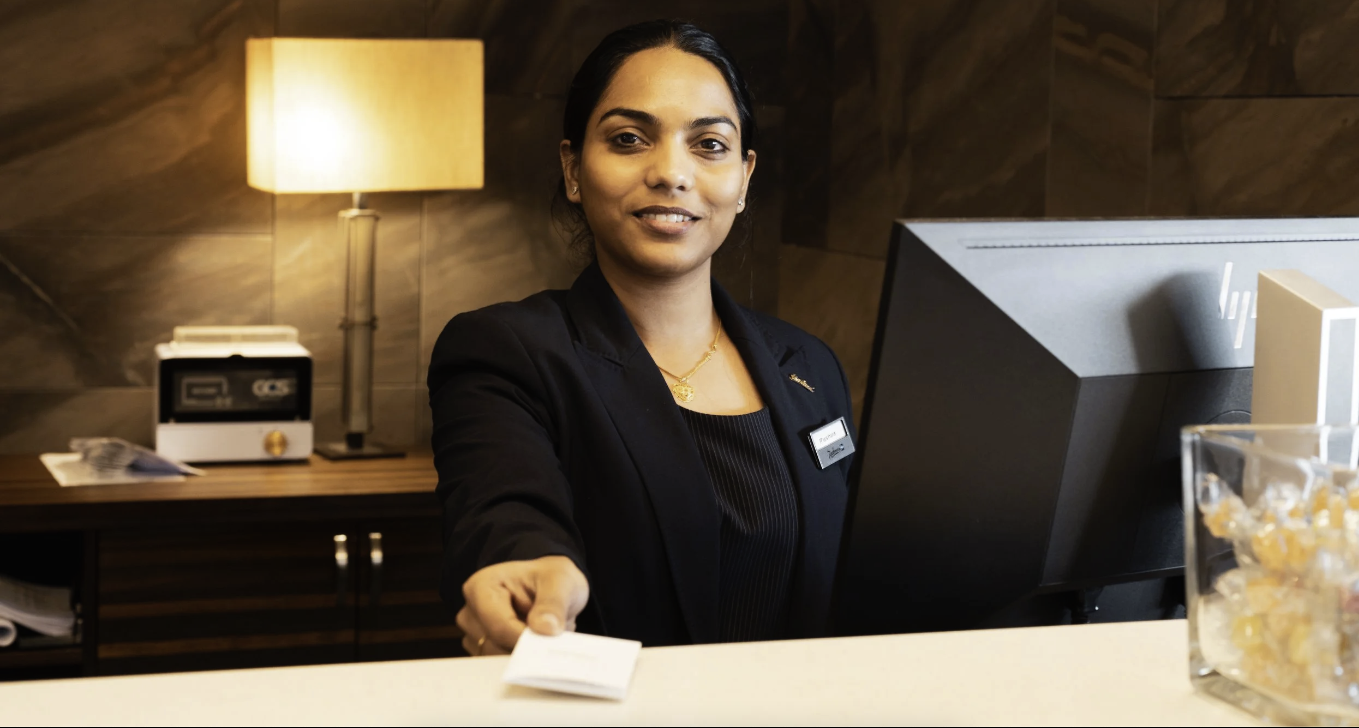How to Start a Restaurant Business in Dubai – Dubai, a city known for its opulence, multiculturalism, and vibrant economy, is a hotspot for culinary enthusiasts and restaurateurs. The thriving hospitality industry, coupled with a diverse population and an ever-increasing influx of tourists, makes it an ideal destination for starting a restaurant business. However, launching a restaurant in Dubai requires careful planning, adherence to local regulations, and strategic execution. Here’s a step-by-step guide to help you navigate the journey.

Guide For – How to Start a Restaurant Business in Dubai
1. Research the Market and Identify Your Niche
Dubai’s food scene is as diverse as its population. From high-end fine dining to budget-friendly food trucks, there is a market for every type of restaurant.
Steps to Research the Market
- Analyze Competition: Visit popular restaurants in your niche to understand what they offer.
- Understand Local Preferences: Learn about the food preferences of Dubai’s residents and tourists.
- Identify Gaps: Look for opportunities where demand is high but supply is low.
For instance, a vegan restaurant or a specialty café catering to health-conscious diners could tap into an underserved market.
2. Understand the Legal Framework
Dubai’s government has stringent regulations for setting up businesses, including restaurants. Adhering to these laws is crucial to avoid legal hassles.
Licenses Required
- Trade License: Obtain this from the Department of Economic Development (DED).
- Food and Safety License: Issued by the Dubai Municipality.
- Liquor License (if applicable): Required for serving alcohol.
Additionally, ensure compliance with Dubai’s health and safety standards. Your kitchen layout, food storage, and hygiene practices will be inspected before approval.
3. Choose the Right Location
The location of your restaurant can make or break your business. Dubai offers a range of options, from bustling city centers to serene beachfronts.
Tips for Choosing a Location
- Foot Traffic: Areas like Dubai Marina, Downtown Dubai, and Jumeirah attract significant footfall.
- Accessibility: Ensure the location is easy to access with ample parking facilities.
- Target Audience: Match your location with your target demographic.
For instance, a family-friendly restaurant would thrive in residential areas, while a high-end fine dining restaurant might find success in luxury hotels.
4. Develop a Solid Business Plan
A well-structured business plan is essential for securing funding and guiding your operations.
Components of a Business Plan
- Executive Summary: Outline your restaurant concept and goals.
- Market Analysis: Include data on your target audience and competitors.
- Menu Design: Detail the dishes and pricing strategy.
- Financial Projections: Estimate startup costs, operating expenses, and revenue.
Use real-life examples to back your claims. For instance, a successful business model could be inspired by Dubai’s popular eateries like Zuma or La Petite Maison.
5. Secure Funding
Starting a restaurant in Dubai can be expensive, with costs varying based on size, location, and concept.
Funding Options
- Personal Savings: Self-fund your venture if possible.
- Bank Loans: Approach local banks offering SME loans.
- Investors: Partner with investors who believe in your vision.
Tip: Highlight unique aspects of your restaurant, like organic ingredients or live cooking stations, to attract funding.
6. Design Your Restaurant
The design and ambiance of your restaurant play a crucial role in attracting customers.
Key Considerations
- Theme and Décor: Match the design with your restaurant’s concept.
- Comfort and Functionality: Prioritize customer comfort and efficient staff workflows.
- Technology Integration: Use digital menus, online reservations, and POS systems.
Example: A Mediterranean restaurant can include blue and white tones with rustic décor to create an authentic feel.
7. Curate a Unique Menu
Your menu is your restaurant’s identity. Focus on offering dishes that cater to the tastes of your target audience while maintaining quality and consistency.
Tips for Menu Planning
- Signature Dishes: Create unique dishes that set you apart.
- Dietary Options: Include vegetarian, vegan, and gluten-free choices.
- Pricing Strategy: Ensure your prices reflect the quality and experience offered.
8. Hire and Train Staff
Your team is the backbone of your restaurant. From chefs to waitstaff, every role contributes to the overall customer experience.
Key Hiring Tips
- Experience Matters: Hire skilled chefs and experienced managers.
- Cultural Sensitivity: Dubai’s workforce is diverse; ensure your team respects different cultures.
- Customer Service Training: Train staff to handle customers professionally and courteously.
9. Market Your Restaurant
In a competitive city like Dubai, effective marketing is crucial to make your restaurant stand out.
Marketing Strategies
- Online Presence: Create a website and active social media profiles.
- Collaborations: Partner with influencers and food bloggers for reviews.
- Promotions: Offer opening discounts and loyalty programs.
Example: Host themed nights or live music events to attract crowds.
10. Monitor and Optimize
Once your restaurant is up and running, constant monitoring and optimization are essential for long-term success.
Key Metrics to Track
- Customer Feedback: Use surveys and reviews to improve services.
- Sales Data: Analyze peak hours and best-selling dishes.
- Operational Efficiency: Optimize staff schedules and inventory management.
Conclusion
Starting a restaurant business in Dubai is a rewarding yet challenging endeavor. With proper planning, market understanding, and a passion for food, you can turn your dream into a thriving reality. Remember, success doesn’t happen overnight; stay committed, adapt to changes, and always prioritize customer satisfaction.
For more information and updates on starting a business in Dubai, check out Dubai Department of Economic Development’s official website.





